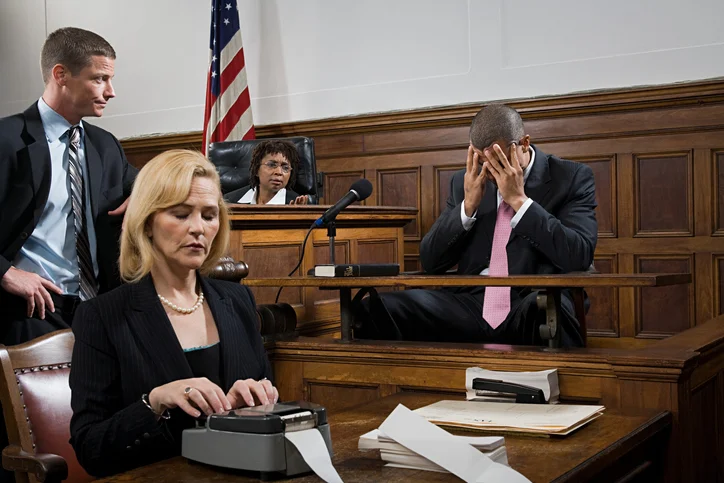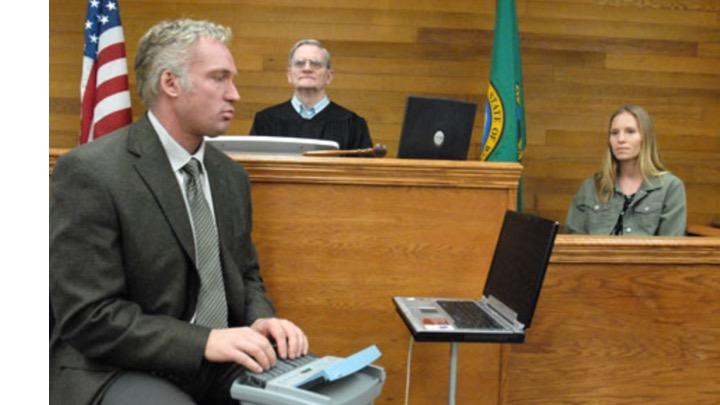Court Reporting Solutions-- Reliable and Trusted in the Legal Industry
Court Reporting Solutions-- Reliable and Trusted in the Legal Industry
Blog Article
Comprehending the Importance of Court Reporting in Legal Solutions and Procedures
Court reporting plays a crucial duty in the legal landscape, functioning as the backbone of accurate paperwork in numerous lawful process. By supplying verbatim records, stenotype reporter make sure that every testimony and argument is diligently caught, therefore guarding the integrity of the judicial procedure. Beyond simple documents, their work supports justness and transparency, which are basic principles of justice. The evolution of technology and the honest ramifications bordering this career raise essential questions concerning its future. What might these adjustments mean for the legal system and its stakeholders?
Function of Court Reporters

Along with transcription, stenotype reporter are frequently charged with handling and preserving the flow of process. They have to excel in legal terms and have a thorough understanding of courtroom methods to guarantee that the document shows the context and subtleties of the discussion. Their work may likewise prolong beyond standard courts, encompassing management hearings, adjudications, and other legal setups where documents is crucial.
Furthermore, court press reporters might offer real-time coverage, making it possible for instant accessibility to transcripts throughout proceedings, which can be essential for the effective management of justice. By making certain that an exact document is maintained, court reporters maintain the honesty of the lawful procedure, promoting appeals and offering as a crucial resource for legal specialists in their pursuit of justice.
Value of Precision

The duty of precision extends beyond plain transcription; it includes the capacity to record the subtleties of speech, consisting of tone, emphasis, and non-verbal hints, which can be vital in comprehending the context of declarations made. A precise record ensures that all parties involved-- courts, lawyers, and judges-- have access to the exact same information, fostering justness and transparency in the judicial process.
Furthermore, accurate records are crucial for the appellate process, where greater courts rely upon them to assess reduced court decisions. Errors can endanger the end result of a charm, possibly impacting a celebration's flexibilities and rights. Therefore, the commitment to accuracy in court reporting is not simply a specialist obligation yet a foundation of justice that supports the regulation of regulation.
Types of Lawful Process
Covering a wide range of legal contexts, court press reporters are important in numerous sorts of lawful process, each calling for distinctive techniques and skills. Amongst the most usual kinds are civil lawsuits, criminal trials, and administrative hearings. In civil lawsuits, stenotype reporter catch activities, depositions, and testaments, making sure that every detail is recorded precisely for potential appeals or negotiations.
In criminal tests, the function of court press click reference reporters comes to be much more important, as they transcribe all facets of the proceedings, consisting of court choices, witness official statement testaments, and sentencing stages - Court Reporting. The precision and immediacy of these records are critical, provided the potential repercussions for accuseds and the stability of the judicial system
Administrative hearings, often carried out by governmental firms, likewise depend on court reporters to maintain main documents of proceedings. These hearings can include disagreements relating to regulatory compliance, employment problems, or expert licensing, demanding precise documents.
In addition, specialized procedures such as arbitration and arbitration need stenotype reporter to capture the nuances of contracts and arrangements. Each sort of legal case offers one-of-a-kind challenges, underscoring the relevance of knowledgeable stenotype reporter in promoting the honesty of the lawful process.
Technology in Court Coverage
Developments in innovation have actually transformed the area of court coverage, improving both effectiveness and precision in the transcription process. Typical approaches of manual note-taking have actually been supplemented and, in many cases, replaced basics by advanced digital devices that improve operations and improve accuracy (Court Reporting). Court press reporters now use sophisticated steno makers equipped with real-time transcription abilities, permitting immediate accessibility to a verbatim account of proceedings
Additionally, the assimilation of speech recognition software application has better transformed the coverage landscape. This innovation enables the automatic transcription of talked words, dramatically reducing the time needed for generating official records. In addition, cloud-based systems assist in very easy storage space and access of records, making certain that legal specialists can access crucial files from anywhere, at any moment.
Video clip conferencing devices have actually also become vital parts in remote depositions and hearings, helping court reporters capture proceedings in real-time, despite place. The mix of these technical advancements not only enhances the accuracy of legal documentation but also supports a much more versatile and reliable lawful process. As the field continues to progress, embracing these improvements will be critical in satisfying the expanding needs of the legal industry.
Moral Considerations in Coverage
The combination of innovation in court reporting brings with it a set of ethical considerations that experts must navigate meticulously. As stenotype reporter significantly utilize digital tools, concerns surrounding privacy, accuracy, and integrity come to the leading edge. Securing delicate details is critical; press reporters need to ensure that any type of electronic documents are safely saved and shared just with accredited people.
In addition, the accuracy of transcriptions is crucial. Utilizing software application for real-time coverage does not discharge court reporters from the obligation of ensuring that the end product is specific. Moral commitments determine that any type of errors need to be quickly fixed and interacted to relevant celebrations.

Lastly, conformity with lawful criteria and industry regulations is crucial. Court reporters need to stay notified regarding advancing honest standards to promote the trust fund put in them by the legal system. By attending to these moral factors to consider, court press reporters can remain to offer indispensable solutions in lawful proceedings while maintaining public confidence.
Conclusion
In conclusion, court reporting plays a crucial function in the lawful system by guaranteeing exact and dependable documentation of judicial process. The meticulous work of court reporters upholds the honesty of the legal process and sustains the legal rights of people involved.
Court coverage plays a critical duty in the legal landscape, serving as the foundation of exact paperwork in different lawful procedures.Court press reporters regularly play a vital role in the judicial process by producing precise, verbatim transcripts of legal proceedings.Additionally, exact transcripts are important for the appellate procedure, where higher courts count on them to evaluate lower court decisions.Covering a wide variety of legal contexts, court press reporters are vital in different types of legal proceedings, each requiring distinctive strategies and abilities. By dealing with these ethical factors to consider, court reporters can proceed to give invaluable solutions in lawful procedures while maintaining public confidence.
Report this page